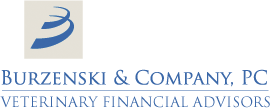Point number one: veterinary practices should have firewalls and technology policies in place to protect their computer software. Unfortunately, many practices do not have firewalls or policies though. A professionally installed hardware firewall is a vital security device that can hinder hackers from accessing your internal network. It can also keep confidential data from leaking out.
An Internet connection, especially a broadband connection, is the most common entry point for most hackers. These would be thieves and business thugs constantly find new ways to access computer systems. Hopefully your practice’s computer system will not be one that they target.
It is imperative that you do whatever you can to keep your practice’s internal computer system and even financial records from being compromised.
Here are suggested steps your practice can fairly easily implement to keep potential hacker disruption to a minimum and protect your practice. These basic security suggestions are simple enough for most hospitals to achieve.
- Only owners and practice managers should have the administrator passwords and handle the most basic software installs themselves. An outside IT or Practice Management System (PMS) vendor should be called to handle more advance software installations and may access the system with owner/manager permission only.
- Internal Wi-Fi networks must have strong passwords that are only known by practice owners and managers.
- Public Wi-Fi for client use must also be password protected but the password should be posted in the reception area. This protects clients and prevents them from getting into each other's cyber business.
- Windows Operating System updates should be set to automatic on all computers. Call your PMS vendor before turning on any server software firewalls.
- If you have Adobe Flash/Reader and/or Java installed, they should be updated every month. The latest Chrome browser self-updates as does the latest Firefox browser,
- The log in for most Windows users should be as a Standard or Restricted user. All software must be installed under administrator rights for standard or restricted users.
- For hardware firewalls, Sonic Walls can be installed between the Internet modem and the main network switch, anti-virus and anti-malware software should be installed on each computer. Microsoft Security Essentials is a minimum requirement if PMS interference is a concern, but double check with your PMS vendor.
- Configured and installed Sonic Walls cost about $1,500 for the most basic models. They are now sold by Dell and resold by many IT providers. The Barracuda units are better and more costly because they are single purpose units, such as a firewall unit, anti-virus unit or an anti-spam unit.









